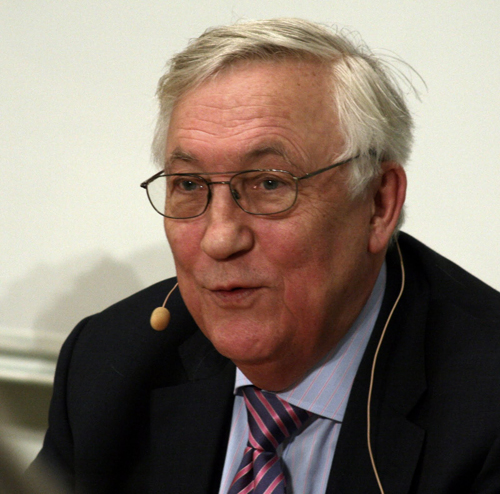Net Zero Watch, 21 April 2023

There is nothing wrong with setting targets. However, it is important to first ensure that the objectives are reasonable and, above all, that they are feasible. Formulating irrelevant goals – or goals that cannot be achieved for scientific, technical or economic reasons – does not benefit anyone, especially the citizens of the country or the population of the world. It does not help at all, no matter how cleverly the slogans are formulated.
Perhaps the most unfortunate example is the so-called 1.5°C target, which has no scientific basis but is merely a political ploy. I say this for the following reasons:
* There is no direct or simple link between greenhouse gas emissions and the Earth’s temperature. The IPCC has shown this clearly in all its six reports. The main reason is that we do not know climate sensitivity (the relationship between carbon dioxide and temperature) well enough. A doubling of greenhouse gas concentrations might raise the global temperature by anything between 2°C and 5°C at climate equilibrium, which means that even if we can accurately determine emissions, the resulting temperature increase cannot be determined any better than by a factor of 2-3. The only meaningful thing that can be done is to agree on an emission target, as was the case with the Kyoto agreement.
* The world’s non-Western population is suffering from a lack of energy, and in many parts of the world a major shortage. Since the early 1970s, energy has come from fossil fuels (over 80%) and biomass (around 10%). This is still the case. These energy sources produce carbon dioxide when burned. No one has seriously thought through how these sourced can realistically be replaced, and especially not how long it will take to do so, or if it is even possible. Sweden is a shining exception here, thanks to the sensible efforts of previous generations of engineers and politicians and not the efforts of today.
* There are no reliable results showing that the world cannot cope with a 1.5°C warming (just a few tenths of a degree more than what has already happened). People living in today’s cities are already 2-3°C warmer than 50 years ago, but most people prefer to live in cities. Europe is on average just over 2°C warmer now than it was 60 years ago. This is because the advantages outweigh the disadvantages, otherwise no one would live there. Furthermore, adaptation – implementing technical measures such as functioning heating and cooling systems for homes and workplaces – has worked well. The problems that exist today are mainly due to lack of capacity, corruption and political incompetence.
The most sensible thing to do today is to study those areas of the world that have managed to adapt to harsh climates. Such areas exist and have always existed. The people of northern Europe have adapted admirably well to a harsh and demanding winter climate. People elsewhere have also managed to do so, for example in demanding climates such as equatorial Singapore, or Israel, Dubai, Kuwait and Saudi Arabia, in the deserts the Middle East.
In the long term, however, it is necessary to find alternative energy systems that will reduce greenhouse gas emissions. The most effective way of doing this is to replace current fossil energy sources with something more cost-effective. However, this requires time, as China in particular has already understood; we can only wish that Europe would demonstrate the same realism.
Solutions cannot simply be ordered. Listening to the bravado of “ambitious” politicians, or the ad-hoc ideas of screaming teenagers (there is a shortage of neither today) risks creating more problems than solutions.
Professor Lennart Bengtsson was Head of Research at the European Centre for Medium-Range Weather Forecasting 1975-1981 and its Director 1982-1990. In 1991-2000 he was Director of the Max Planck Institute for Meteorology in Hamburg. In 2000-2015 he was professor in the University of Reading and from 2008-2013 Director of the International Space Science Institute in Bern, Switzerland. He is honorary member of the American Meteorological Society, the Royal Meteorological Society and European Geophysical Union. This is a slightly edited version of a blog post that originally appeared at the Det Goda Samhället blog.
Bengtsson: ‘That I have taken a stand trying to put the climate debate onto new tracks has resulted in rather violent protests. I have not only been labeled a sceptic but even a denier, and faced harsh criticism from colleagues.’
‘The low-point is probably having been labeled ‘world criminal’ by a representative of the English wind power-industry.’
He notes ‘the long period during the last 17 years with insignificant or no warming over the oceans, and the increase in sea-ice cover around the Antarctic’
‘What is perhaps most worrying is the increased tendency of pseudo-science in climate research. This is revealed through the bias in publication records towards only reporting results that support one climate hypothesis, while refraining from publishing results that deviate. Even extremely cold weather, as this year’s winter in north Eastern USA and Canada, is regarded as a consequence of the greenhouse effect.’
‘Even more alarming is the tendency of giving people the impression that weather events are becoming more extreme’
‘How soon and to what extent ‘climate change’ will happen. There is no 97% consensus about this.’




